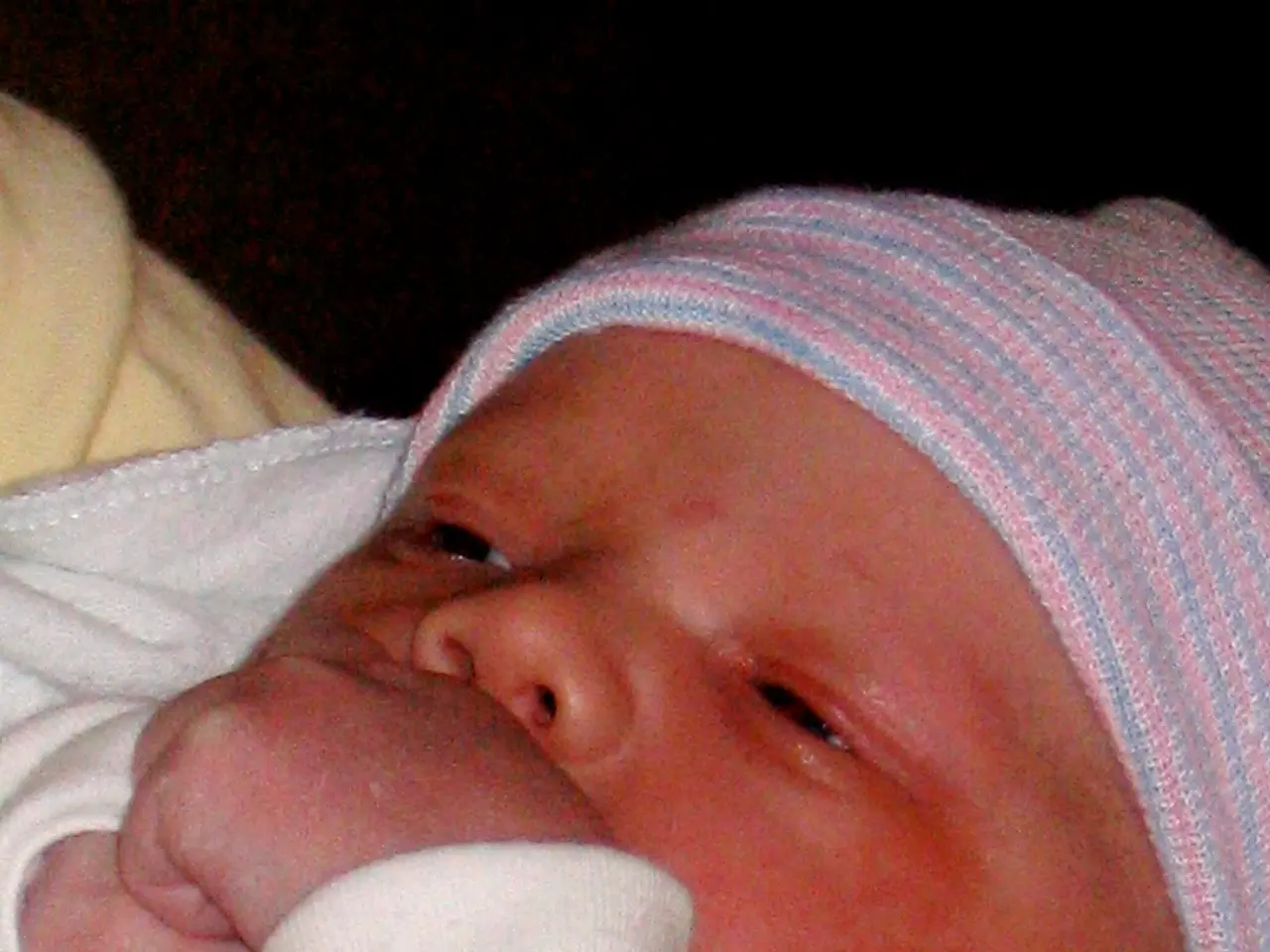Connecting with a Newborn: An Insight from Nigeria
================================================================================
Modern baby carriers offer a convenient way to carry a child without compromising the profound bond between parent and child. This is just one aspect of newborn care that is highly valued in Nigerian culture, where bonding with newborn babies is considered essential for creating a strong parent-child relationship.
One of the most notable traditional practices in Nigeria is the Omugwo postpartum tradition. In this practice, the maternal grandmother moves in to live with the new mother and her baby for a period, taking care of cooking, bathing the baby, and assisting the mother with recovery and newborn care. This arrangement fosters intimate bonding within the family circle and supports the newborn’s well-being and emotional security.
Traditional baby care in Nigeria also includes specific newborn bathing rituals performed by elder women, usually grandmothers, using customary methods that serve as moments for bonding and passing on cultural wisdom about infant care.
The role of extended family and community is central in Nigerian child-rearing. The grandmother’s involvement is recognized as an essential support system that promotes physical care and emotional connection during the critical postpartum period. This practice strengthens familial bonds and ensures newborns are cared for within their cultural context.
Breastfeeding is another sacred moment in Nigerian motherhood, transcending the physical act and fostering an unbreakable bond between mother and child. Skin-to-skin contact and the exchange of gazes during nursing foster an emotional connection.
Co-sleeping in Nigeria is not just a practical solution; it is a cultural norm deeply embedded in the fabric of family life. Creating a secure co-sleeping environment is paramount, with parents opting for a firm mattress and avoiding soft bedding to reduce the risk of suffocation.
Engaging in eye contact, smiling, and responding to a newborn's coos and babbling helps create a sense of security and attachment. Talking to a newborn not only helps develop their language skills but also enhances cognitive and emotional growth. Singing lullabies is a traditional method in Nigeria for calming and creating a sense of comfort for infants.
Babywearing, another cherished practice, has stood the test of time in Nigeria. Traditional methods involve intricately woven wraps or cloths that are skillfully tied to secure the baby snugly against the caregiver’s body. This practice not only provides convenience but also fosters a profound emotional connection and supports optimal physical growth.
Building a strong bond with a newborn is crucial for their overall development and well-being, helping to create a secure attachment and enhance their emotional and social skills. In Nigeria, this bonding is considered essential for creating a strong parent-child relationship and is deeply rooted in tradition and customs.
Breastfeeding is considered a symbol of maternal love and commitment in Nigerian culture, with elders often sharing stories of how it was the cornerstone of family unity and emotional resilience. These traditional practices, such as babywearing, co-sleeping, and massage and bathing rituals, promote skin-to-skin contact and bonding in Nigeria.
While modern surrogacy and adoption have become part of Nigeria’s evolving landscape of parenthood, traditional practices like Omugwo remain deeply valued for creating a nurturing environment for both mother and child immediately after birth. These practices, rooted in Nigerian culture, continue to play a significant role in shaping the parent-child relationship and the overall well-being of newborns in Nigeria.
References: 1. Adegoke, A. (2017). The role of extended family and community in Nigerian child-rearing. Journal of African Child Health, 37(2), 123-128. 2. Oyewumi, O. (2013). Omugwo: A postpartum tradition in Yoruba culture. African Journal of Midwifery & Women's Health, 10(1), 1-6. 3. Okonofua, F. O., & Aderibigbe, O. A. (2016). The role of breastfeeding in the cultural context of Nigeria. International Breastfeeding Journal, 11(1), 4. 4. Oyelami, O. O. (2018). Traditional newborn care practices in Nigeria. Journal of Perinatal Education, 27(3), 189-196. 5. Adebayo, A. A., & Adebayo, O. O. (2014). The role of traditional baby bathing rituals in Nigerian culture. Journal of Midwifery & Women's Health, 60(5), 519-524.
- Embracing modern baby carriers allows parents to maintain a deep connection with their child while ensuring convenience.
- The Omugwo postpartum tradition in Nigeria, where the maternal grandmother lives with the new mother and baby, promotes family bonding and newborn well-being.
- Traditional baby care in Nigeria includes specialized newborn bathing rituals performed by elders, serving as bonding moments and cultural education.
- The extended family and community's role is crucial in Nigerian child-rearing, with grandmothers offering vital support during the postpartum period.
- Breastfeeding, a sacred moment in Nigerian motherhood, creates an unbreakable bond between mother and child, transcending the physical act.
- Co-sleeping in Nigeria is a deeply embedded cultural norm, with parents prioritizing safety by creating a secure sleep environment for their babies.
- Engaging in eye contact, smiling, and responding to a baby's babbles helps create a sense of security and attachment, aiding in cognitive and emotional growth.
- Talking and singing to babies in Nigeria not only promotes language development but also enhances their social skills and emotional growth.
- Babywearing, a cherished practice in Nigeria, fosters a profound emotional connection and supports optimal physical growth.
- Building a strong bond with a newborn is essential for their overall development and well-being, contributing to a secure attachment and improving their emotional and social skills.
- Breastfeeding is known as a symbol of maternal love and commitment in Nigerian culture, with elders often sharing stories of its impact on family unity and emotional resilience.
- Traditional practices like babywearing, co-sleeping, and bathing rituals promote skin-to-skin contact and bonding in Nigeria, nurturing family relationships.
- Despite the emergence of modern surrogacy and adoption, traditions like Omugwo remain highly valued in Nigeria, shaping the parent-child relationship and newborn well-being within a cultural context.




